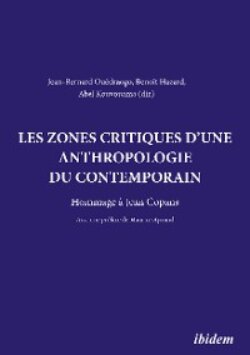Читать книгу Les zones critiques d'une anthropologie du contemporain - Группа авторов - Страница 20
As South Africa goes, so goes Anthropology
ОглавлениеA siamese-twinning of experience and self-projection, of identity and strategy, of simulation and dissimulation among the human subjects of our research in post-apartheid South Africa has led to paradigmatic fragmentation and conflict within the discipline. The English-speaking social anthropologists are shocked that the post-apartheid condition harbours the old forms of authoritarianism among new black leaders as well as among the citizenry. In dispute with the new grand narratives of modernization as we were with the old, anthropologists are almost as out of favour with the bureaucracy now, and it with us, as we were before liberation. Meanwhile, the attempts of our Afrikaans-speaking colleagues to retain their responsive relationships to government, and to substitute the term “culture“ for what was called “race“ appear to have had some success.
Our own efforts at practice-oriented introspection alerted us to the consequences of these realities for methodology. Ethnography now had to be pursued in a field saturated with factional politics, suspicion, antagonism, manipulation, disingenuousness and the ambivalent reflections of our subjects upon our researches and researchers. Indeed, perhaps this had always been the case. Our subjects were neither what they’d been thought to be, nor whom they claimed or seemed, and our categories were not reflected in situations on the ground. No one spoke for the community, though there was no lack of spokespersons. Many non-spokespersons wouldn’t speak to us at all, and those who would, wanted to ask rather than answer questions: Who were we? Who paid and sent us? Who and what did the research serve? What were we getting out of it? What would they get out of it? Could we get them attention, resources, services, justice or jobs? How could they be sure we got the “right“ impression? What, if anything, were we good for (Coplan 1998)?
Behind the uncomfortable silences of subjects who felt better safe than sorry were larger, more worrying questions: Was it simply the insouciant caution of the black American poet Paul Dunbar to wit; “Why should the world be over wise/In counting all our cares and sighs“ (Dunbar 1895), or were they in practical terms justified in trying to manage rather than engage us? It is apparent that our research subjects or interlocutors (ethnographic co-authors?) at this point have us figured out at least as well as we have them. And they have their own purposes for us and our work that are more important to them than ours. Most of the new generation of colleagues admit of none of this. “The People“ must be framed as the sincere source of authentic experience, and we of moral insecurity and privileged hypocrisy. In response to all this, a politics of not only of opposition, but politics in general, has come to dominate an anthropology desperate to demonstrate its bona fides to predictably radicalized students, and why “advocacy scholarship“ has become the order of our day (Jean Copans 2019).
Presently at our formerly “white“, now non-racial universities, there is great fear among academics of marginalization and even direct attack, based on long-lasting perceptions of anthropology as a colonial discipline impervious to populist political transformation. Professor Copans has spoken and written authoritatively on this dilemma as it has played out within Francophone African Studies (2000, 2006, 2013). In South Africa the result has been a consolidation of theoretical and empirical hegemony by the insurgent left, so that other political perspectives or indeed any perspective that is not overtly politically oriented have been publicly silenced. The agenda is to campaign on behalf of the “have-nots“, while attacking the existential legitimacy of the “haves“, the category to which academics guiltily believe they belong. Karl Marx is, as ever, the godfather of this insurgent hegemony, and Franz Fanon its totemic embodiment. And of equal concern, indeed, is the absence of any persuasive or fully coherent theoretical counter-discourse. The Comaroffs have done their indefatigable best to provide an alternative conceptualization of post-colonial ethnological theory (Comaroff and Comaroff 2009, 2012), but it has not the same apocalyptic rejectionist energy or self-conviction.
Of course it is not only in South Africa that the universities have, for the present, politically limited academic freedom and free speech. But as my life has become a longue durée, I have ceased to either lament or complain about this, or about my own present irrelevance. I am grateful that my department still tolerates my ancestral presence, and my spirit has moved on. I continue to hope, however, that the confrontation of advocacy with social reality will lead in the longer durée of scholarship to a re-orientation toward how the people are actually living and what they think and do about it. These would be the surest guidelines along the currently fashionable boulevard to “de-colonization“, and not faux-nativist rejections of cultural appropriation and globalizing hybridity so deeply imbricated in African world-views.
